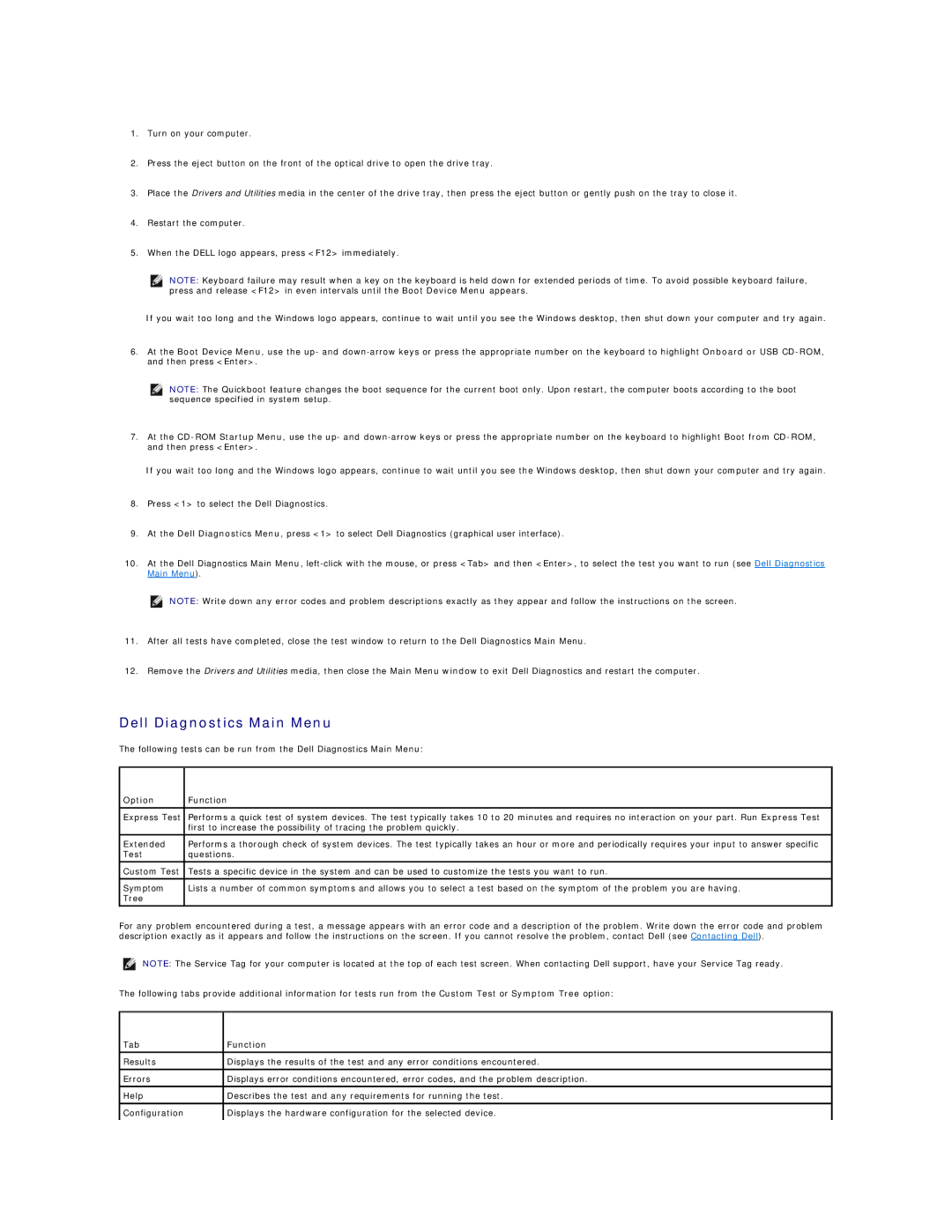1.Turn on your computer.
2.Press the eject button on the front of the optical drive to open the drive tray.
3.Place the Drivers and Utilities media in the center of the drive tray, then press the eject button or gently push on the tray to close it.
4.Restart the computer.
5.When the DELL logo appears, press <F12> immediately.
NOTE: Keyboard failure may result when a key on the keyboard is held down for extended periods of time. To avoid possible keyboard failure, press and release <F12> in even intervals until the Boot Device Menu appears.
If you wait too long and the Windows logo appears, continue to wait until you see the Windows desktop, then shut down your computer and try again.
6.At the Boot Device Menu, use the up- and
NOTE: The Quickboot feature changes the boot sequence for the current boot only. Upon restart, the computer boots according to the boot sequence specified in system setup.
7.At the
If you wait too long and the Windows logo appears, continue to wait until you see the Windows desktop, then shut down your computer and try again.
8.Press <1> to select the Dell Diagnostics.
9.At the Dell Diagnostics Menu, press <1> to select Dell Diagnostics (graphical user interface).
10.At the Dell Diagnostics Main Menu,
NOTE: Write down any error codes and problem descriptions exactly as they appear and follow the instructions on the screen.
11.After all tests have completed, close the test window to return to the Dell Diagnostics Main Menu.
12.Remove the Drivers and Utilities media, then close the Main Menu window to exit Dell Diagnostics and restart the computer.
Dell Diagnostics Main Menu
The following tests can be run from the Dell Diagnostics Main Menu:
Option | Function |
|
|
Express Test | Performs a quick test of system devices. The test typically takes 10 to 20 minutes and requires no interaction on your part. Run Express Test |
| first to increase the possibility of tracing the problem quickly. |
|
|
Extended | Performs a thorough check of system devices. The test typically takes an hour or more and periodically requires your input to answer specific |
Test | questions. |
|
|
Custom Test | Tests a specific device in the system and can be used to customize the tests you want to run. |
|
|
Symptom | Lists a number of common symptoms and allows you to select a test based on the symptom of the problem you are having. |
Tree |
|
|
|
For any problem encountered during a test, a message appears with an error code and a description of the problem. Write down the error code and problem description exactly as it appears and follow the instructions on the screen. If you cannot resolve the problem, contact Dell (see Contacting Dell).
NOTE: The Service Tag for your computer is located at the top of each test screen. When contacting Dell support, have your Service Tag ready.
The following tabs provide additional information for tests run from the Custom Test or Symptom Tree option:
Tab | Function |
Results | Displays the results of the test and any error conditions encountered. |
|
|
Errors | Displays error conditions encountered, error codes, and the problem description. |
|
|
Help | Describes the test and any requirements for running the test. |
|
|
Configuration | Displays the hardware configuration for the selected device. |
|
|
